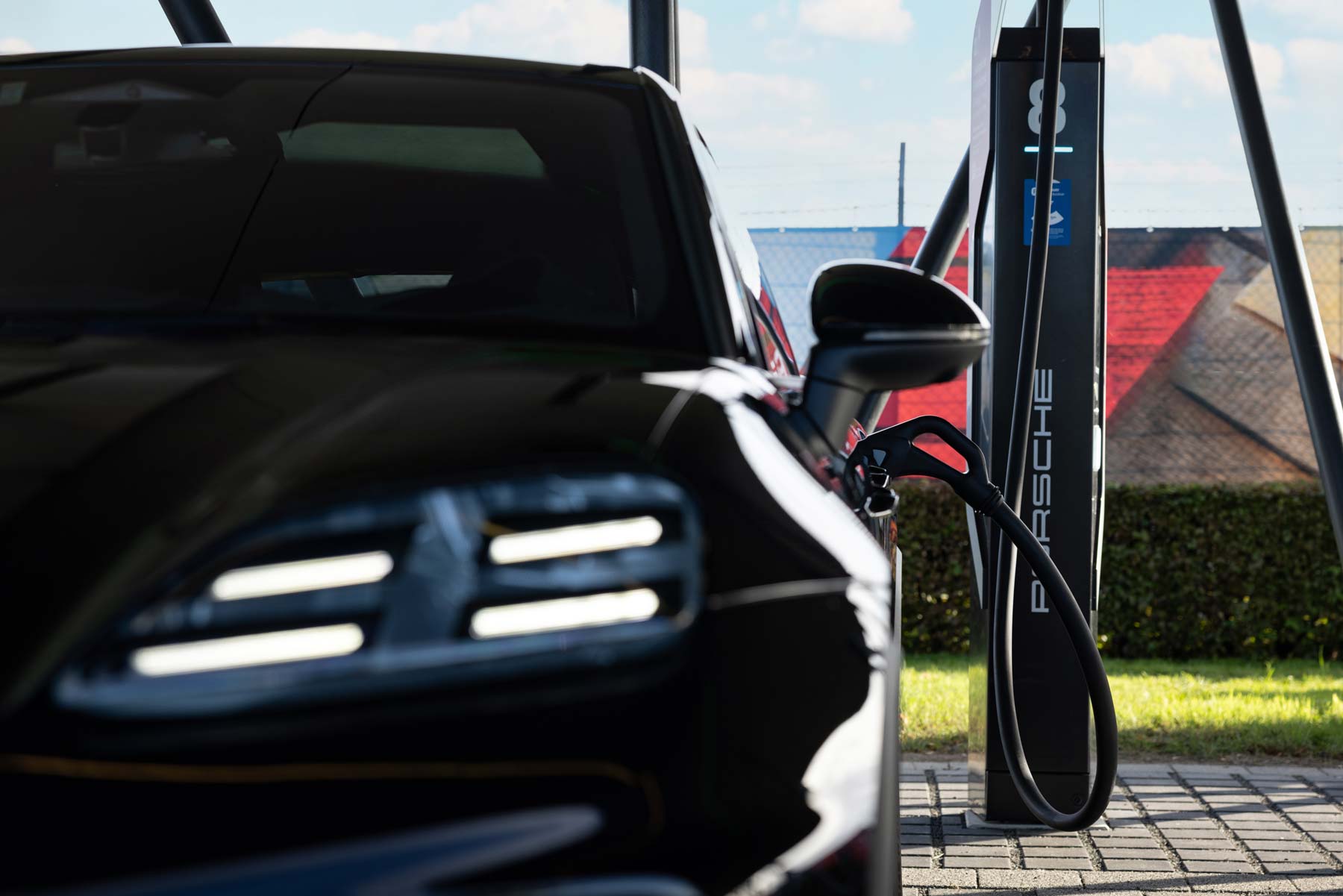

Porsche’s history began in 1948 with the Type 356 and the company has endured for 70-plus years by continuing to stay modern while satisfying its fans. The German brand launched its first EV, the Taycan, for model year 2020 and it now makes up about nine percent of total sales in North America.
The juggernaut is the Macan, however, Porsche’s lively two-row SUV that still comes equipped with a gas-powered engine. Making up a full 37 percent of Porsche’s sales on this continent, that’s more than the Taycan and the next-best-selling model–the Cayenne–combined. Porsche’s next move is to electrify its Macan, a development that has been in the works for several years. Now we know that it’s coming to the U.S. very soon as a 2024 model. The automaker’s goal is for more than 80 percent of all vehicles delivered to be all-electric by 2030.

To speed along the process, Porsche completed a new body shop in Germany that doubled the maximum output of its photovoltaic systems (converting sunlight into electricity) from 4.6 to 9.4 megawatt peak (the measurement of the power conversion). As it works toward “zero impact” factories, the brand has already implemented a biomass heating system, which diverts energy created from the manufacturing process to heat that now covers nearly half of the heating requirements at the company’s plants. But, the company is hedging its bets, providing an option for different powertrains across the board.
“In [the] future, the plant will be able to manufacture ICE, hybrid and electric vehicles on the same line. After all, in some of our markets, the charging infrastructure still has to get better in order for e-mobility to continue its forward march,” a Porsche keynote speaker told the crowd at its technology workshop in October.
While Porsche had planned to manufacture the gas-powered Macan and electric Macan simultaneously in Europe, a new EU regulation spurred the brand to pivot and halt sales altogether. According to Automotive News Europe, the EU is enacting a new set of cybersecurity rules to protect cars from hacking that takes effect on July 1. Part of the mandate includes segments of the development and manufacturing process. Since the Macan was already in progress, it would be too expensive to update.

“Implementing the directive not only requires adjustments in the technical implementation, for example in the control units, but also essentially a change of processes in the development phase,” a Porsche spokesperson told Automotive News. “For example, management systems will have to be developed and certified for cybersecurity in future.”
That’s not the case in the U.S., luckily. While Porsche hasn’t revealed all of the details yet, it says the electric Macan will be equipped with two motors generating about 600 horsepower in the top-of-the-line Turbo version. Estimated range for the Macan is in the 300-mile range, which is fairly standard at this point and bests the total range of the Taycan, which is a little under 250 miles.
Other features we know about are a brake-by-wire system that harnesses electric regenerative braking before applying the physical brakes. One-pedal driving isn’t an option to the dismay of some, but I’ll reserve judgment until we can drive it myself. I typically find single-pedal driving jerky and less smooth than its more familiar counterpart. Porsche is known for its superlative ride, so it makes sense for it to equip the new Macan with a setup that matches its legacy.
The MSRP is still a mystery so far, but we’d guess it’s going to be higher than the gas-powered Macan prices currently starting at $62,550 and tops out at $88,450 for the GTS.
